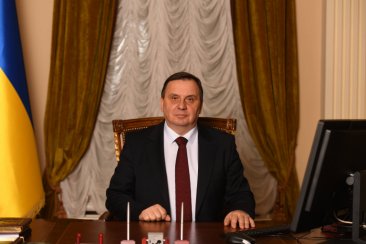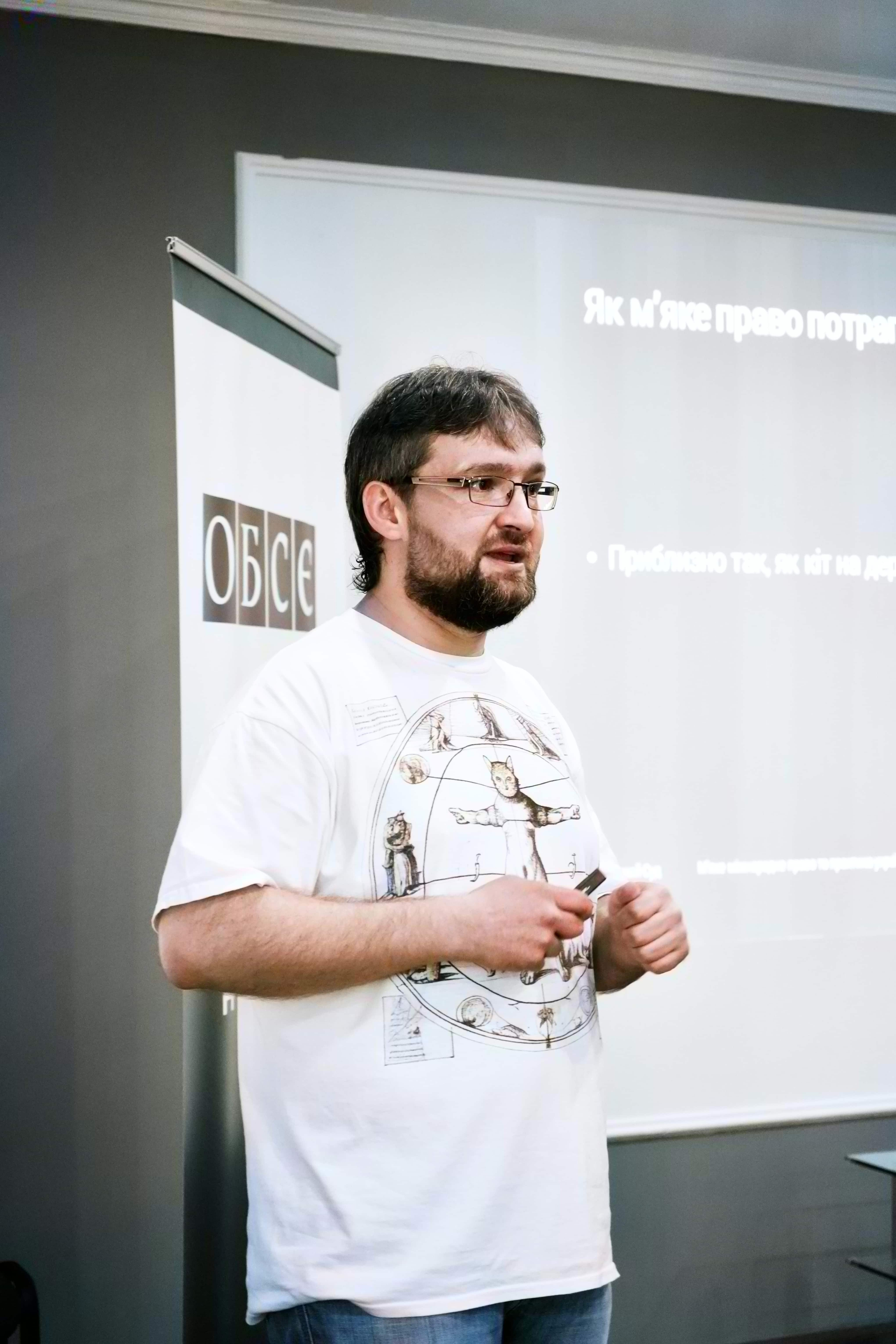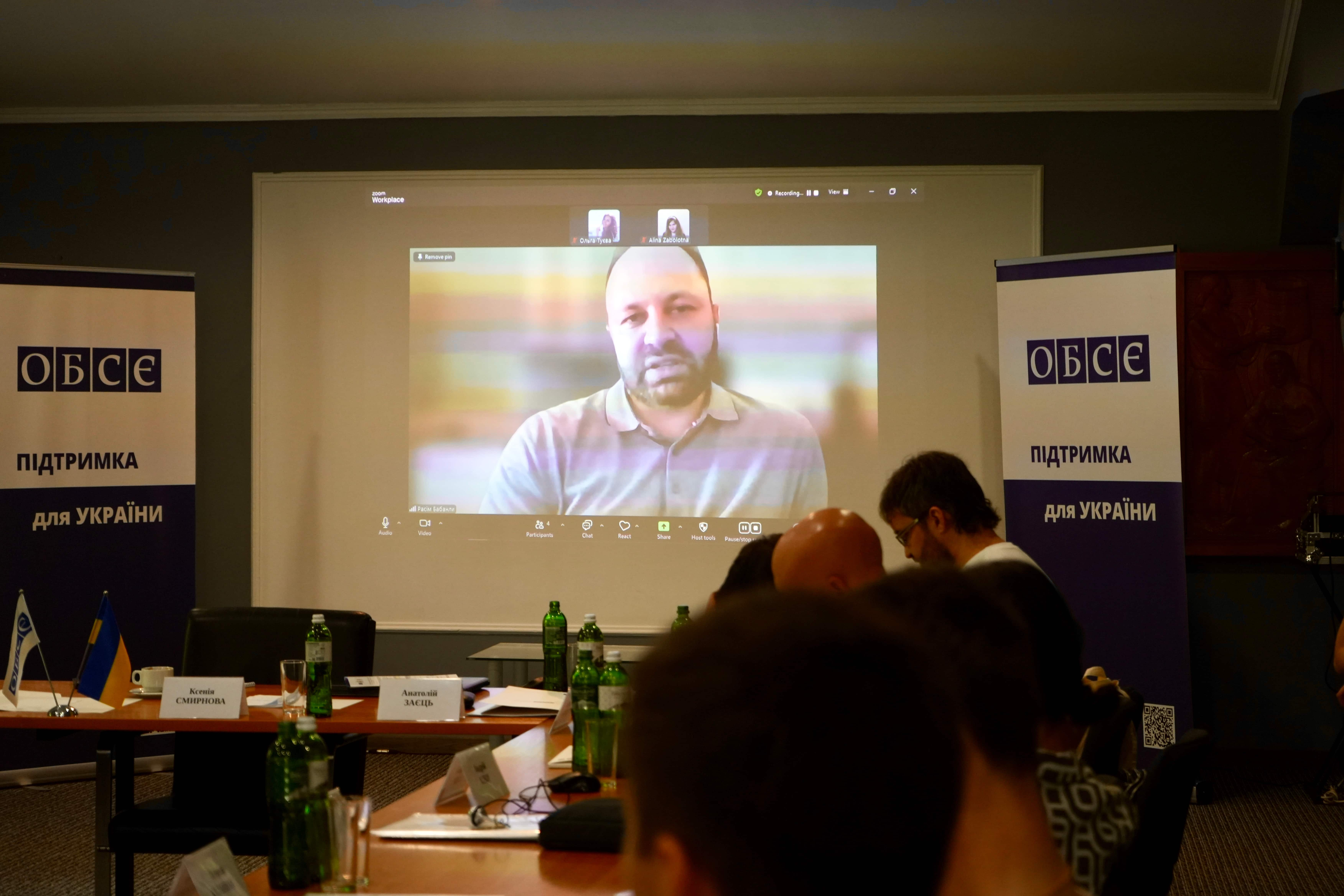Contact center of the Ukrainian Judiciary 044 207-35-46

Education is the foundation for the development of any nation. It shapes not only professional skills but also worldview, values and culture. And it is through education that we can raise future lawyers, advocates and judges who will have these values as the main guideline in their work, so our main goal is to create conditions for better and faster training of professional lawyers. That is why the Supreme Court pays considerable attention to cooperation with students, teachers and scholars.
This was stated by Stanislav Kravchenko, President of the Supreme Court, during the opening of the Second International Law Summer Academy.
This year's programme of the International Law Summer Academy is dedicated to the issues of international justice, interaction of international and national law, international humanitarian law, as well as discussion of legal aspects of European integration processes, i.e. the issues that are most relevant in today's realities.
‘Since the first days of the full-scale war, the courts have faced many challenges related to the consideration of criminal proceedings for war crimes. Among them are issues related to the status of a combatant, the qualification of these crimes and the application of a special procedure for criminal proceedings in absentia. We have been actively analysing these and other issues of international law since the first weeks of the war,' said the President of the Supreme Court.
Stanislav Kravchenko also drew attention to the importance of international mechanisms for bringing the aggressor country to justice, as they can help ensure a fair punishment for the most serious war crimes committed on the territory of Ukraine.
In addition, the President of the Supreme Court mentioned a landmark event, namely the ratification of the Rome Statute of the International Criminal Court, which will open up new opportunities for Ukraine in the international arena.
In conclusion, Stanislav Kravchenko expressed his gratitude to the OSCE Support Programme for Ukraine within the framework of the project ‘Assisting the Supreme Court and higher courts in implementing judicial reform and ensuring access to justice in times of war’, the Ukrainian Association of International Law and the National Academy of Legal Sciences of Ukraine for organising the Summer Academy, which is an important platform for studying and discussing key issues of international law.
Dmytro Hudyma, Supreme Court Judge at the Civil Cassation Court, spoke about the application of international soft law instruments in the practice of Ukrainian courts in certain categories of disputes. Such acts are not binding, but reference to them can strengthen the reasoning of a court decision.

The judge cited Ukrainian courts' practice of using the “Namibian exceptions” formulated in the Advisory Opinion of the International Court of Justice of 21 June 1971 on “Legal Consequences for States of the Continued Presence of South Africa in Namibia (South West Africa) Notwithstanding United Nations Security Council Resolution 276 (1970)”. Based on these so-called exceptions, national courts are able to use certain documents of the occupying power as evidence, including birth and death certificates.
Dmytro Hudyma also focused on the importance of using the general comments of the UN Committee on the Rights of the Child to clarify the content of the Convention on the Rights of the Child (1989). Thus, to interpret the concept of ‘the best interests of the child’, the courts apply general comment No. 14 (2013) on the right of the child to have his or her best interests as a primary consideration (article 3, paragraph 1) of 29 May 2013. These comments contain a minimum list of elements to be taken into account when assessing and determining the best interests of the child.
As the speaker highlighted, when the Supreme Court commenced its work, particularly in the context of specific categories of administrative cases, the issue of how to proceed in the absence of comprehensive national legislation governing certain relations promptly emerged. Therefore, the Supreme Court began to use international soft law instruments more actively in its practice.
The judge noted that the Supreme Court applies the Recommendations of the Committee of Ministers of the Council of Europe, including for justifying the presence or absence of grounds for reviewing decisions of national courts in case the ECHR recognises a violation of the Convention for the Protection of Human Rights and Fundamental Freedoms. This refers to Recommendation No. R (2000) 2 of 19 January 2000 to Member States on the re-examination or reopening of proceedings in certain cases at the national level following judgments of the European Court of Human Rights. The first reference made in the USRCD to the application of this Recommendation in a resolution of the Supreme Court of Ukraine was dated 16 May 2011 (case no. 5-4кс11). The Grand Chamber of the Supreme Court has also repeatedly applied these Recommendations since the beginning of its activity (for example, the resolution of the Grand Chamber of the Supreme Court of 7 February 2018 in case No. 9101/94335/2012).
The speaker paid special attention to the use of acts of the Consultative Council of European Judges to substantiate decisions: on the impossibility of bringing judges and courts to civil liability for the consequences of their decisions (for example, the resolution of the Grand Chamber of the Supreme Court of 21 November 2018 in case No. 757/43355/16-ц); on bringing judges to disciplinary liability (for example, the resolution of the Grand Chamber of the Supreme Court of 8 November 2018 in case No. 800/165/17).
Along with the CCJE opinions, the courts apply the provisions of acts of international meetings (conferences), the UN General Assembly, etc. In particular, this refers to the justification for refusing to appoint a judge (resolution of the Grand Chamber of the Supreme Court of 8 November 2018 in case No. 800/274/17 (П/9901/398/18)).
Rasim Babanly, First Deputy Chief of Staff of the Supreme Court, addressed the analysis of certain judgments of the European Court of Human Rights delivered in 2022-2024.

In particular, he drew attention to the ECHR judgments in the case of TOTAL S.A. AND VITOL S.A. v. France, which highlights issues related to judicial interpretation and judicial activism and their role in lawmaking.
Thus, the concept of ‘law’ used in the Convention for the Protection of Human Rights and Fundamental Freedoms is traditionally interpreted by the ECHR quite broadly, and according to its established position, case law is also law.
At the same time, Article 7 of the Convention establishes the principle of ‘no punishment without law’. Accordingly, the legal certainty requirements for criminal law provisions are stricter than for other legislative provisions. However, even in the context of Article 7 of the Convention, the ECHR allows for a certain limit of judicial activism, pointing out that the legislator, when formulating certain prohibitions, may use broad concepts, and this is quite natural, since the law does not necessarily have to look like an instruction.
'It is very important to understand this because recently there has been a situation where the essence of the legal debate is that everything should be written very clearly in the law. In fact, such a requirement is unnatural, and a very important role is given to judicial activism and judicial interpretation,' said Rasim Babanly.
The said judgment of the ECHR also concluded that many laws use more or less vague formulas, depending on the circumstances, the interpretation and application of which depends on practice. Therefore, in any legal system, no matter how clear the wording of a legal provision is, including criminal law provisions, there is inevitably an element of judicial interpretation.
In addition, Rasim Babanly pointed out that since 2022, the issue of whether Article 438 of the Criminal Code of Ukraine (violation of the laws and customs of war) meets the requirements of legal certainty has been discussed quite actively. This article is a blanket provision and refers to the norms of international humanitarian law. At the same time, in the aforementioned judgment, the ECHR stated that cases where provisions of national legislation contain blanket references to international law do not constitute a violation of the Convention.
In addition, the First Deputy Chief of Staff of the Supreme Court analysed the judgment of the ECHR in the case of L.T. v. Ukraine, which concerns the application of compulsory medical measures to a person. In accordance with the Criminal Procedural Code of Ukraine, such measures are applied to incapacitated or partially incapacitated persons. These persons do not have procedural capacity, and therefore cannot apply to the court on their own behalf, in particular, file an appellate complaint. Instead, such persons may appeal against the application of compulsory medical measures to them through their defence counsel or legal representative.
In this case, the ECHR found a violation of Article 6 of the Convention due to the fact that the court did not accept the appellate complaint of the person himself. The ECHR also drew attention to the practice of the Supreme Court, which, despite the rather conservative interpretation of the relevant provisions of the Criminal Procedural Code of Ukraine, overturned the decisions of the appellate courts that did not allow the relevant cases to be considered. This position of the Supreme Court, according to the First Deputy Chief of Staff of the Supreme Court, obviously contributes to the observance of citizens' rights.
Rasim Babanly also added that there is a similar ECHR practice in civil cases, according to which, as a general rule, a person who is deprived of legal capacity in the substantive sense does not have procedural capacity, but there is an exception to this rule: a person has the right to apply for the restoration of his or her legal capacity in civil proceedings.
Another position of the ECHR, which was highlighted by the speaker, concerned the sources of evidence for establishing paternity. Thus, in the judgment in the case of Moldovan v. Ukraine the Court pointed out that the conclusion of a DNA examination in such legal relations cannot be ignored, as it is almost the only objective evidence that can testify to the fact of paternity of one person in relation to another.
Finally, answering the audience's questions on how to solve the systemic problem of excessive duration of proceedings, Rasim Babanly emphasised the need to optimise the court network by consolidating them and increasing the number of judges.